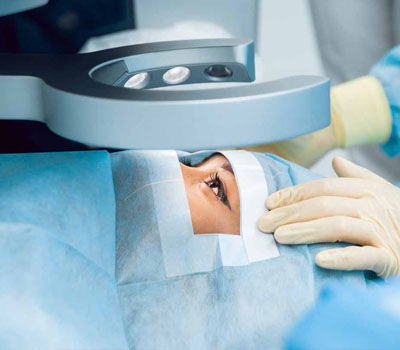
Vitreoretinal Disorders
Vitreoretinal disorders encompass a broad spectrum of conditions affecting the vitreous humor and retina, two vital components of the eye essential for vision. These disorders can lead to various symptoms and vision impairment, requiring specialized care from ophthalmologists or retinal specialists.
- Retinal Detachment: Separation of the retina from the underlying tissue, leading to symptoms like flashes of light, floaters, and vision loss.
- Macular Degeneration: Progressive deterioration of the macula, causing central vision loss, distorted vision, or blind spots.
- Diabetic Retinopathy: Damage to the blood vessels in the retina due to diabetes, resulting in vision impairment or blindness.
- Retinal Vascular Occlusions: Blockage of retinal blood vessels, causing decreased blood flow and potential vision loss.
- Retinopathy of Prematurity (ROP): Abnormal blood vessel development in premature infants' retinas, potentially leading to vision impairment or blindness.
- Macular Edema: Swelling or fluid accumulation in the macula, affecting central vision clarity.
- Epiretinal Membrane: Formation of scar tissue on the retina's surface, distorting vision or causing decreased visual acuity.
- Vitreous Hemorrhage: Bleeding into the vitreous humor, leading to floaters, vision loss, or even total loss of vision.
Treatment for vitreoretinal disorders depends on the specific condition and its severity. Common treatment approaches include:
- Medications: Intravitreal injections of anti-VEGF agents or steroids to reduce swelling, control abnormal blood vessel growth, or treat inflammation.
- Laser Therapy: Photocoagulation or photodynamic therapy to seal leaking blood vessels, treat abnormal vessel growth, or induce scarring.
- Surgical Interventions: Vitrectomy, scleral buckling, or pneumatic retinopexy to repair retinal detachments, remove vitreous hemorrhage, or address other complex retinal issues.
- Intraocular Implants: Placement of devices or implants to support the retina or deliver medication directly into the eye.
- Lifestyle Modifications: Managing underlying health conditions like diabetes, hypertension, or high cholesterol to prevent or slow the progression of retinal disorders.
Early diagnosis and timely treatment are crucial for managing vitreoretinal disorders effectively and preserving vision. Regular eye examinations, particularly for individuals at risk, such as those with diabetes or a family history of retinal disease, are essential for detecting and addressing these conditions promptly. Working closely with an eye care specialist can help optimize treatment outcomes and improve overall visual health.
